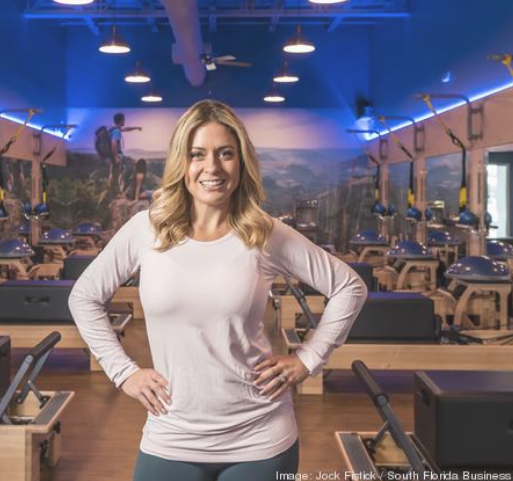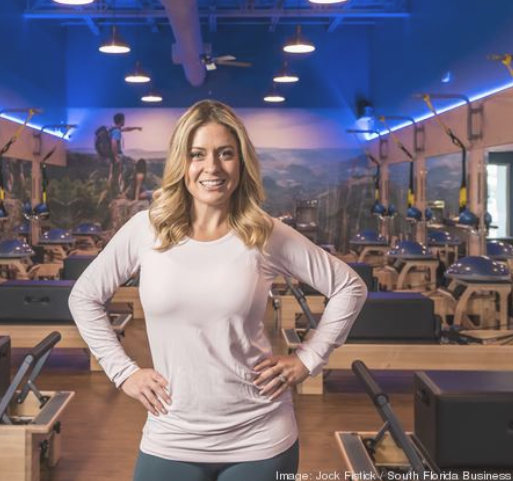When Amanda Gomez contemplated trading in her corporate career to open her own Pilates studio, she knew it would only be possible if she could make that transition without breaking the bank.
Purchasing a fitness franchise from an established brand, rather than launching her own from scratch, seemed like the safest bet, Gomez said. That led her to Club Pilates, a San Diego-based franchise. Gomez opened her first studio in Jupiter in 2015, followed by a West Palm Beach location in early 2019.
“My goal was three studios in five years, and I’m on track for that,” Gomez said.
In a fast-growing health and fitness sector that centers on specialized workouts in group settings, boutique fitness studio owners must weigh whether to go with a low-risk franchise model with a recognizable name or take a bigger risk by bootstrapping their concept to create their own brand. For many prospective business owners, franchising seems to be the obvious choice.
Franchising vs. bootstrapping
The sense of security and brand awareness that came with Club Pilates is what ultimately led Gomez to purchase a franchise.
With more than 460 locations, Club Pilates claims it is the largest group Pilates studio franchise in the U.S.
Gomez opened South Florida’s first Club Pilates location in 2015. Within four years, Club Pilates had franchised 16 studios in the tri-county area.
Like Orangetheory, Club Pilates offers franchisees marketing, operational and real estate guidance.
“The time it takes to start and market a new business takes away from actual studio time,” Gomez said. “Without support, it’s hard to move ahead.”
Original Article by Ashley Portero on BizJournals.com.
| See Full Article Here |



